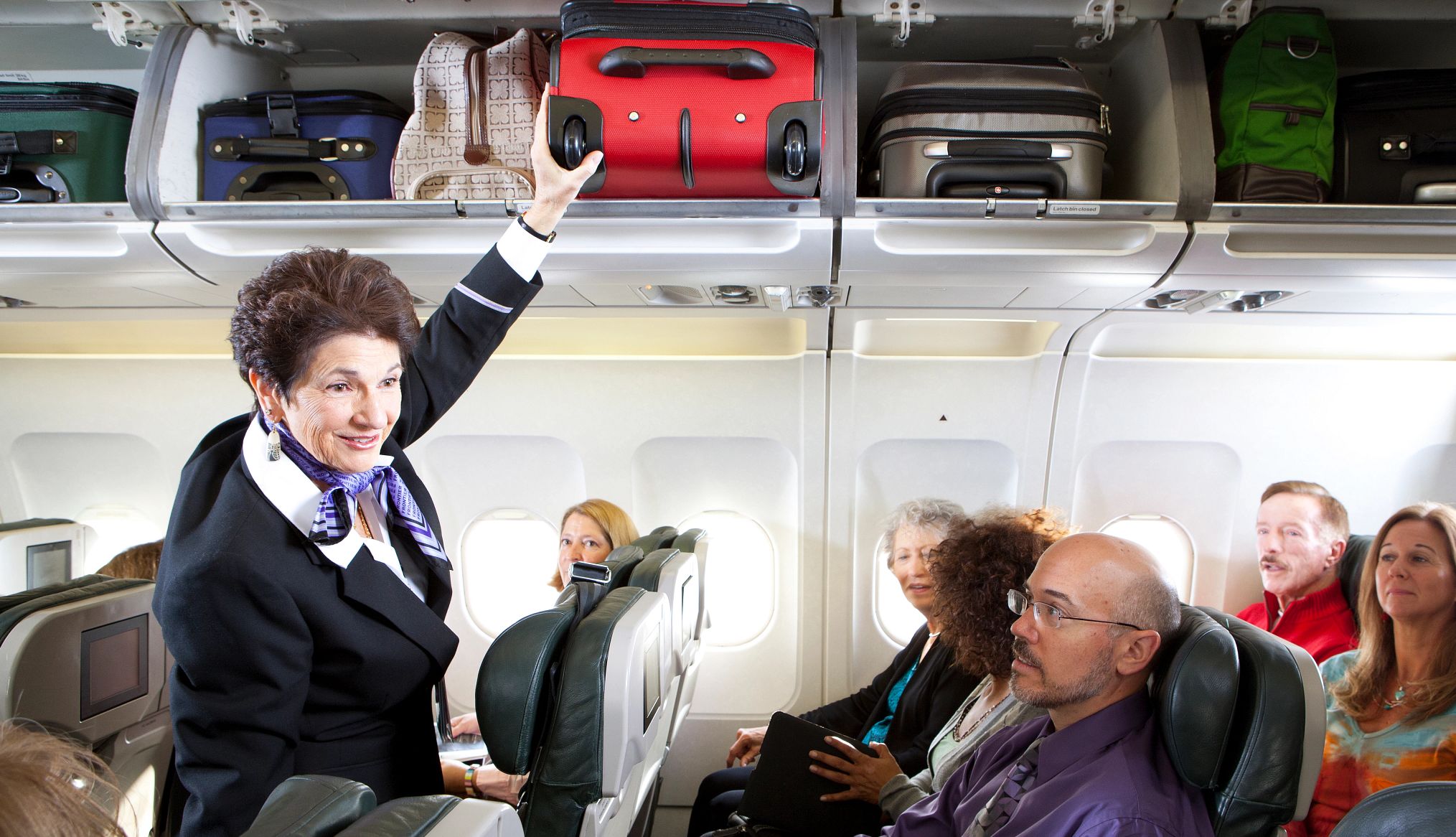Staying Fit


Youlandar Harris of Ruleville, Mississippi, was a retired police officer in her 50s who was looking for a new career opportunity. She tried nursing but didn’t find it to be a good fit. Then she began looking into becoming a flight attendant — and her path became clear.
“I have been enjoying life after 50 — going international, going to different states. I am loving it,” she says.


AARP Membership— $12 for your first year when you sign up for Automatic Renewal
Get instant access to members-only products and hundreds of discounts, a free second membership, and a subscription to AARP the Magazine.
If you’ve ever found yourself wanting to combine your love of travel with an exciting, demanding, people-oriented career, becoming a flight attendant might be just the ticket. While competition for flight attendant jobs is fierce, employment in the field is expected to grow at a rate of about 11 percent over the next decade, which is much faster than average, according to the Bureau of Labor Statistics. Flight attendants earned an average of $63,760 per year in 2022, the BLS says.
The ‘golden’ ticket
Over the past two to three years, Lynn Van Ort — executive director of The Travel Academy, an Eagan, Minnesota–based company that prepares flight attendant candidates to apply to airlines — has seen a shift in what airlines are looking for. She says airlines are asking for “golden candidates”: prospective flight attendants age 40 and older with life experience that will make them better at their jobs.
“Not only are they able to provide stellar service to first-class passengers, but they can also easily relate to mothers with babies with them or teenagers that are being too loud,” Van Ort says. She adds that more-seasoned people are prime candidates for the rigors of flight attendant training now.
Deanna Castro, founder of Future Flight Attendant, a virtual coaching program for flight attendant candidates, agrees. “I always tell people, ‘There’s no expiration date on your dreams,’ ” she says. “I know people become flight attendants in their late 60s. There’s not an age limit. There’s no retirement age for [flight attendants].”
If you’re interested in becoming a flight attendant after age 50, here are some basics you should know — and prepare for — as you dive into this competitive and exciting career.
1. Understand the hiring process
Mauricio Herrera, a flight attendant based in Miami, Florida, was 45 years old and had worked in information technology since the late 1990s. But the long days of sitting at his desk were taking a toll on his body, and he was looking for something new. When he and his wife took a road trip to the Delta Flight Museum during the pandemic, he had his aha moment.


































































More From AARP
How to Become a Real Estate Agent After 50
A short course and licensing exam are all it takes to get startedDo You Work at a Job That AI Might Snatch Away?
Nearly 1 in 5 people work in a job that AI may affect
Why 50-Somethings Are Changing Careers
For many Gen Xers, changing priorities means changing ambitions at work
Recommended for You